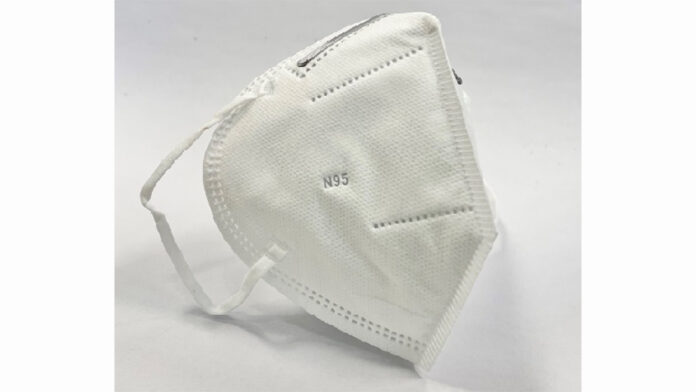SABIC’s journey toward localizing the production of hygiene and personal protection equipment reached an important milestone when a local medical products company applied its polymer solutions to produce N95 masks in Saudi Arabia for the first time.
Using SABIC’s polypropylene material, the Saudi Mais Company produced the N95 masks in collaboration with Demas Factory for Non-Woven Fabrics and obtained the necessary approvals after conforming to the Saudi Food and Drug Authority specifications.
Yousef Al-Benyan, SABIC Vice Chairman and CEO, said that SABIC is strongly committed to contributing toward achieving Saudi Vision 2030 goals through NUSANED™, a SABIC national initiative that enables the development of strategic industries and supports Saudi companies to maximize local content. He said that SABIC is working closely with local manufacturers to create innovative and sustainable solutions and is developing the necessary raw materials to produce quality products.
Al-Benyan added that the local production of masks is an important step in localizing medical products that contribute toward improving public health. He noted that the NUSANED™ initiative covers a wide base of entrepreneurs and manufacturers to help localize strategic industries and transfer the necessary technologies.
A team from SABIC recently visited Demas and Mais factories where they met with plant executives who valued SABIC’s efforts in producing the raw materials to manufacture the N95 masks entirely from innovative materials made in Saud Arabia. They stressed that this successful engagement reflected the importance of collaboration between the private and public sectors to support national products and localize the hygiene and personal protection equipment industry.
SABIC launched a Hygiene and Healthcare unit in September to further expand its market focus and adopt innovation to respond promptly to customer needs and provide more focused solutions. The aim was to keep pace with the world’s changing requirements by promoting the contribution of petrochemicals to the medical equipment sector. This was especially necessitated after the outbreak of the COVID-19 pandemic, affecting the global supply chains of hygiene products and leading to severe restrictions on medical product exports in many countries.












